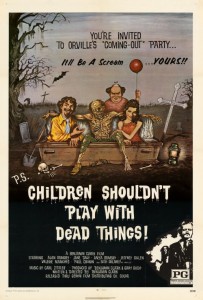Fists in the Pocket / Pugni in tasca, I (1965)
“This little brain of mine — that you didn’t trust an inch! — planned the whole thing.”
“This little brain of mine — that you didn’t trust an inch! — planned the whole thing.”
“See you next week, then.”
|
Synopsis: |
|
Genres, Themes, Actors, and Directors:
Review: In Jeanne Dielman, however, director Chantal Akerman strips prostitution completely bare: there are no fancy outfits or make-up here; no cat calls; no dangerous street positioning; no pimps; no underlying psychological reasons for having entered into this profession. What we’re left with instead is a middle-aged homemaker and mother who happens to have sex for money with men on a regular basis. It’s never stated explicitly in the film, but it’s implied that neither Jeanne’s son nor any of her neighbors have any idea what she does to bring in money. Indeed, until the final moments of the film, not even the audience sees Jeanne servicing her Johns — all we are allowed to witness are scenes of Jeanne inviting a man into her bedroom; exiting a few seconds later (in a convenient time lapse); coldly accepting cash from him; and stating almost robotically, “See you next week, then,” before seeing the man out the door. Akerman’s three-hour long character study is ultimately concerned with chronicling the predictable minutiae of Jeanne’s daily life, as she takes care of her home, cooks for her son, answers letters from her sister, watches her neighbor’s baby, and runs various errands around town. None of this is inherently compelling, yet it’s strangely hypnotic to watch Jeanne pursuing her mundane rituals, day after day. Indeed, because so much time is spent showing the way Jeanne carefully maintains control over her life — and the frustration she feels when things don’t go just right — the shocking final moments of the movie seem almost like an inevitable outgrowth of her routine. It’s difficult not to impose one’s own interpretation onto a film like Jeanne Dielman, which leaves so much room for deliberation and conjecture. The unusual power of this marathon exercise in minimalism is the way in which we both accept Jeanne’s “final” action as natural, and find ourselves questioning everything that has come before. Redeeming Qualities and Moments:
Must See? Categories
(Listed in 1001 Movies You Must See Before You Die) Links: |
“The apes have taken over — while we were busy watching television and filling our freezers, they’ve come out of the jungle and moved in!”
“It’s only when hate is dammed up that it breaks out in murder!”
|
Synopsis: |
Genres, Themes, Actors, and Directors:
Review: Despite its obvious flaws, however, Homicidal comes across today as a reasonably enjoyable cult film, primarily because all its ludicrous elements add up to such silly fun. Plus, though the primary plot twist is far too easy to guess, the hidden secret behind this twist comes as a genuine surprise. If you forget that Homicidal was ever meant as a serious rival to Hitchcock’s masterpiece, you’ll probably get a kick out of its enjoyably campy approach to sibling rivalry, gender, loyalty, and murder. Redeeming Qualities and Moments:
Must See? Categories
Links: |
“Ya never know what ya don’t know — y’know?”
|
Synopsis: |
|
Genres, Themes, Actors, and Directors:
Response to Peary’s Review: Redeeming Qualities and Moments:
Must See? Links: |
“I don’t trust priests; they’re all spies.”
“Even my seemingly loyal subjects are as much to be feared as the most rebellious.”
“It’s too late for me; girls can’t come back.”
|
Synopsis: |
Genres, Themes, Actors, and Directors:
Response to Peary’s Review: Redeeming Qualities and Moments: Must See? Links: |
“Get out of the grave, Alan. Get out of the grave and let an artist show you how to call a curse down on Satan!”

Synopsis: |
|
Genres, Themes, Actors, and Directors:
Response to Peary’s Review: Redeeming Qualities and Moments: Must See? Links: |
“My name is Charly Gordon, and I live in a room, and I got no sister and no dog, and I am stupid!”
|
Synopsis: |
Genres, Themes, Actors, and Directors:
Response to Peary’s Review: Redeeming Qualities and Moments:
Must See? Categories
Links: |